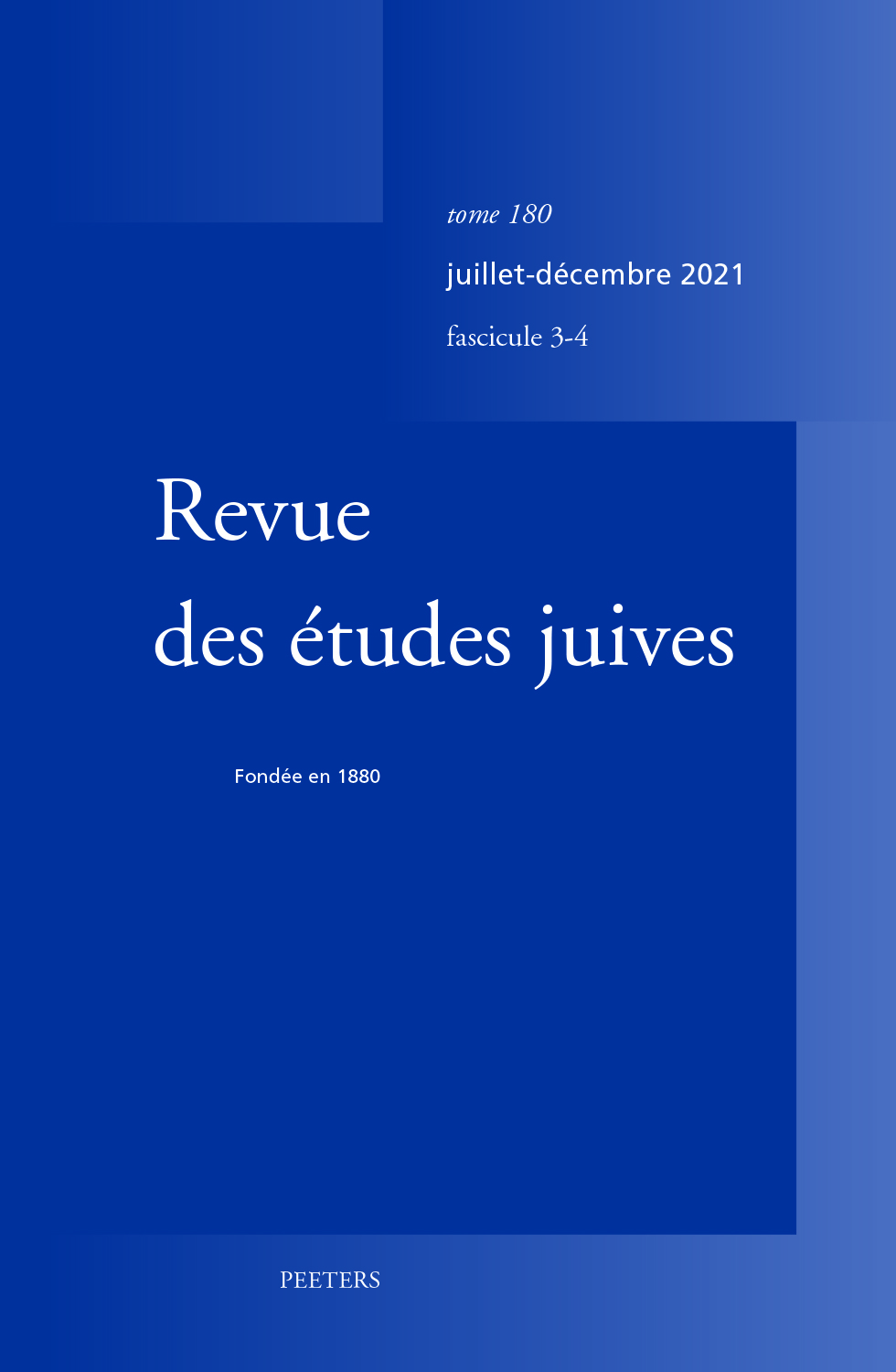 previous article in this issue previous article in this issue | next article in this issue  |

Preview first page |
Document Details : Title: La mise en cause et la défense de la «Philanthropie» des lois juives au Ie et au XVIIIe siècles de notre ère Author(s): BERTHELOT, Katell Journal: Revue des Études Juives Volume: 161 Issue: 1-2 Date: janvier-juin 2002 Pages: 41-82 DOI: 10.2143/REJ.161.1.220 Abstract : Au XVIIIe siècle, face au retour de l'accusation de misanthropie originellement formulée dans la littérature de l'époque hellénistique et romaine, se développe à nouveau une apologie de la «philanthropie» des lois de Moïse, qui d'une part s'inscrit dans la continuité de l'apologie de Philon ou de Flavius Josèphe, et d'autre part s'en distingue radicalement, car elle interprète la notion biblique du ger, de l'étranger résident, dans un sens opposé à celui qui est donné à ce terme au Ier siècle de notre ère. Au Ier siècle, ger signifie «prosélyte» et la philanthrôpia du judaïsme s'exprime dans l'accueil chaleureux des prosélytes, tandis qu'au XVIIIe siècle le ger désigne un étranger qui ne s'est pas converti au judaïsme, et la philanthropie des lois juives consiste à garantir son respect et sa protection au sein de la communauté juive, sans exiger de lui la conversion. Ces interprétations opposées s'expliquent dans les deux cas par l'influence du contexte culturel de l'époque (l'éloge de la philanthrôpia de Rome au Ier siècle, l'idée de tolérance au XVIIIe). The accusations of misanthropy which were formulated against the Jews during the Hellenistic and Roman period can be found again in anti-Jewish writings of the 18th century. The apologetic works which then tried to counter these charges inspired themselves from Philo’s or Josephus’ apologetic works, but simultaneously proposed a very different understanding of what Jewish “philanthropy” meant. Whereas in the first century, the biblical notion of ger (foreign resident) was interpreted as referring to proselytes (and the fact of welcoming proselytes was considered as an expression of Jewish philanthrôpia), in the 18th century the ger referred to a non-Jew who did not convert to Judaism, and Jewish philanthropy consisted in protecting this foreigner without requiring his conversion. These opposing interpretations can be explained by the influence of the notion of Roman philanthrôpia in the first century on the one hand, and by the importance attributed to the idea of tolerance in the 18th century on the other hand. |
|


